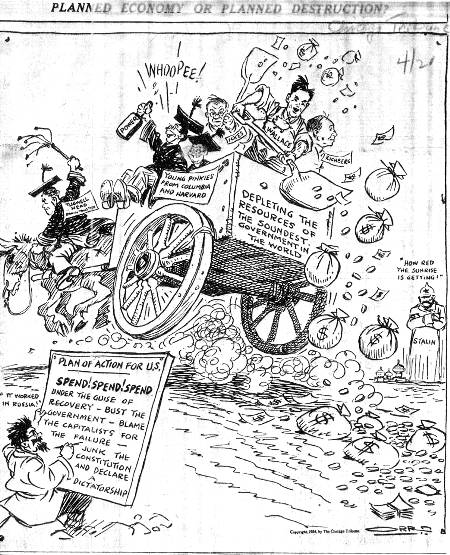by the Night Writer
As part of the furor of the political season, I have seen several news stories in recent days about activist pastors provocatively announcing their intention to endorse candidates from their pulpits. Predictably, this has led to activist groups such as Americans United for Separation (ignore the oxymoron) of Church and State to file complaints with the IRS about the churches violating their tax-exempt status. This was, of course, what the pastors were hoping for in order to force what they hope will be a defining battle over free speech.
All of which I’m sure would cause our hallowed founding fathers — be they Christian, Deist or Other — to shake their heads at the ignorance abounding on all sides.
At issue is that the churches, like most U.S. churches over the past 50 years, have incorporated themselves as 501c3 organizations, ostensibly gaining limited-liability and tax-exempt status, but with the caveat that they can’t engage in politics. The pending confrontation has both sides enthusiastic about the battle, while the IRS is likely much less so. From the article in Tuesday’s Star Tribune:
Although pastors across the country have staged similar protests for years (more than 100 of them this year alone), the IRS has dropped them after investigating the cases, and agency officials have declined to say why they did so.
That’s likely happened because the IRS already knows that a church doesn’t need 501c3 status in order to be tax-exempt.
Despite the rampant ignorance (remember, “ignorance” is not the same as “stupidity”), the issue isn’t that complex. Here’s a useful and easy to understand website that explains this. One section in particular contains the following:
The IRS has acknowledged for decades that it is completely unnecessary for any church to apply for a tax-exempt status. According to IRS Publication 557, as well as IRS Code § 508, churches and church ministries are “exempt automatically.” Application for an exempt status is not only superfluous, but to do so subordinates that church to the IRS. Churches in America have always been nontaxable anyway. It simply makes no sense for a church to go to the IRS and seek permission to be exempted from a tax the government can’t impose in the first place.
The church in America is protected from the government by the First Amendment:
“Congress shall make NO law respecting an establishment of religion, or prohibiting the free exercise thereof.” It would be absurd to suppose that you could have free exercise of religion if you had to pay for it (taxes). If Congress can make NO law respecting the church, it can make NO law to tax the church.
The IRS lacks the jurisdiction necessary to tax the churches in America. The IRS has no more jurisdiction over the churches in America than it does over the churches in Canada. It would be as absurd (and tyrannical) for the IRS to tax the churches in America, as it would be for the IRS to tax churches in Canada. They don’t have jurisdiction.
Neither is your church required to be a 501c3 in order for your contributions to be tax-deductible. Nor is this a radical new concept of Church and State. America’s churches have always been “free” churches as opposed to the state churches prevalent in Europe at the time of our founding. They have neither been under the jurisdiction of, or supported by, the government. In the 1950s the 501c3 was offered as a “benefit” to the churches, perhaps to codify the tax-exemption…while at the same time making all churches who accepted the bargain fundamentally subservient to the State, especially in matters of free speech.
Now you could call it conspiracy, or merely one of those unintended consequences government is so good at, but there conceivably could be a reason why the State (regardless of the administration du jour) might seek to bind the Church’s hands with gold and close its mouth with silver: the Church had historically always been the first to speak up against tyranny, both within and without. Indeed, going back to pre-Revolutionary days, it was the pastors of many denominations who spoke out from their pulpits against the Crown’s violations and depradations, earning the clergy the deep enmity (along with sizable bounties on their heads) of King George and the Tories who referred to them as “The Black Regiment” (because of their black robes). More accurately, the preaching and activism of the clergy was likely worth several regiments in the field. (Here’s a sample sermon, circa 1776, from Rev. Samuel West, perhaps a distant relation of mine.)
The call to conscience, based on the word of God, will often stand in opposition to the rule of law as wielded by tyrants. Henry II is not the only ruler to, in one form or another, say, “Will no one rid me of this troublesome priest?” (Dietrich Bonhoeffer would be a more contemporary version of Thomas Beckett). Bloody decrees somehow only served to fan the flames then; now subtle favors and lulling complacency may be more devastating to liberty. To speak out is not merely the right of the clergy, but their responsibility as well. As John Adams said,
“It is the duty of the clergy to accommodate their discourses to the times, to preach against such sins as are most prevalent, and recommend such virtues as are most wanted.
For example, if exorbitant ambition and venality are predominant, ought they not to warn their hearers against those vices?
If public spirit is much wanted, should they not inculcate this great virtue?
If the rights and duties of Christian magistrates and subjects are disputed, should they not explain them, show their nature, ends, limitations, and restrictions, how muchsoever it may move the gall of Massachusetts?”
As with any right, it comes with responsibility, especially where a nation’s destiny is concerned. As Charles Finney said,
“If there is a decay of conscience, the pulpit is responsible for it.
If the public press lacks moral discernment, the pulpit is responsible for it.
If the church is degenerate and worldly, the pulpit is responsible for it.
If the world loses its interest in Christianity, the pulpit is responsible for it.
If Satan rules in our halls of legislation, the pulpit is responsible for it.
If our politics become so corrupt that the very foundations of our government are ready to fall away, the pulpit is responsible for it.”
Martin Luther’s own words were an unheeded warning in the 1930s as the German state church was subsumed and subverted by the Nazis into a facile caricature of Christianity unable to resist genocide and heritage-shattering megalomania:
“If I profess with the loudest voice and clearest exposition every portion of the truth of God except precisely that little point which the world and the devil are at that moment attacking, I am not confessing Christ however boldly I may be professing Christ.
Where the battle rages there the loyalty of the soldier is proved; and to be steady on all the battlefields besides is mere flight and disgrace if he flinches at that point.”
I’ll credit the vision of the Minnesota pastors speaking out today and applaud their stance, but they never would have had to defend their free speech rights and responsibilities if their churches hadn’t incorporated and accepted their chains and gilded gags in the first place. (One might also wonder when the Revs. Jeremiah Wright and Al Sharpton, and Fr. Pfleger might be called into account by Americans United).
The American Church has accepted a foolish bargain and allowed liberty to be burned before its altars. The cause is no more dire today than it has ever been. Similarly, the cost is the same and must be paid with vigilance and boldness.













